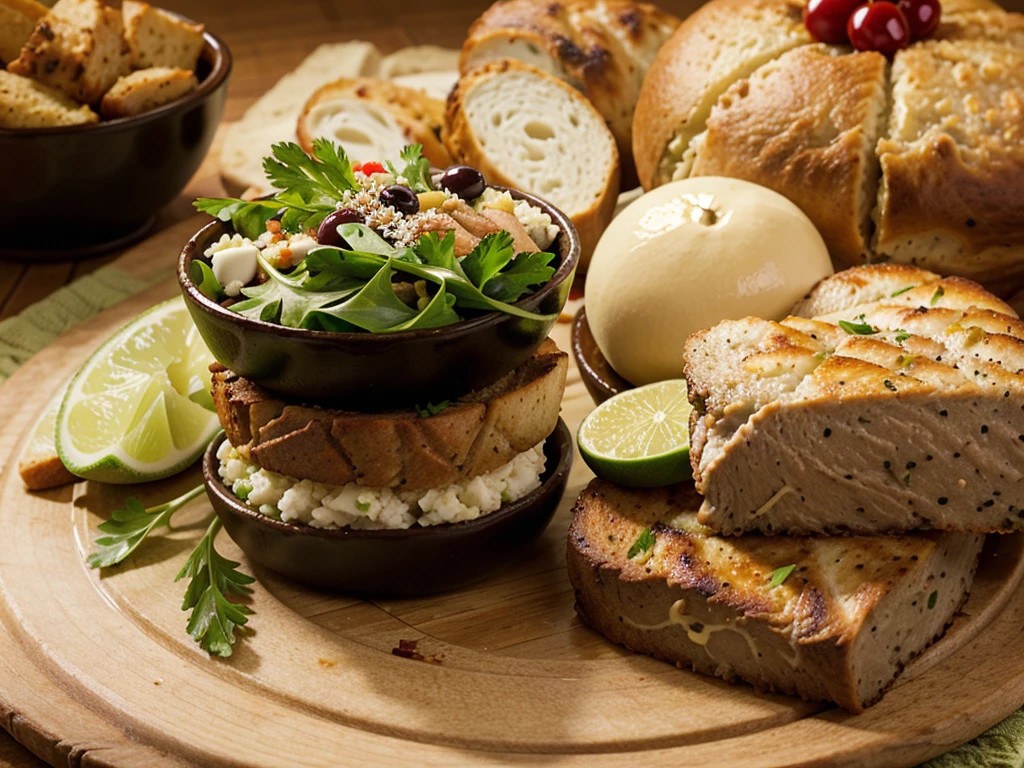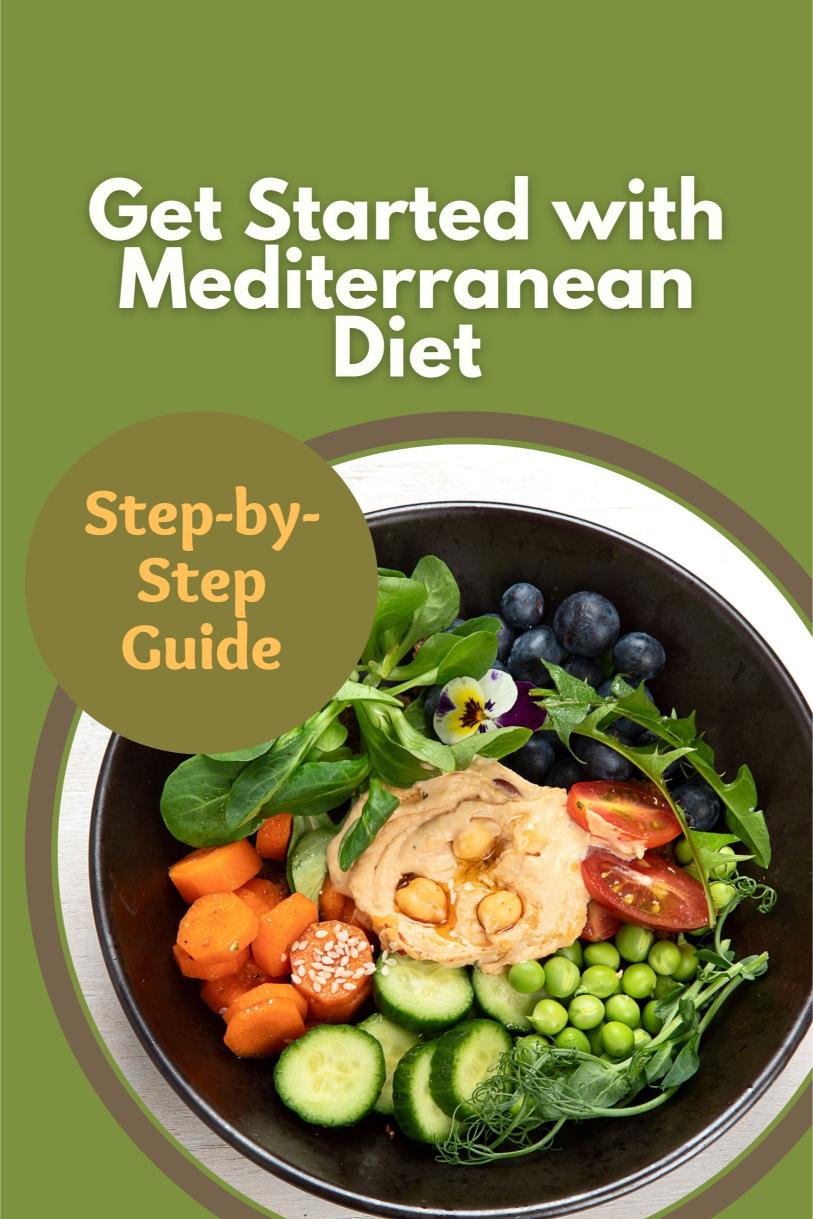Last Updated on January 23, 2025 by Arif Chowdhury
Have you ever wondered why the Mediterranean diet is often referred to as the healthiest way of eating? It’s not just a trend; it’s a lifestyle rooted in centuries of tradition. By focusing on fresh, whole foods and enjoying meals in moderation, this diet has been shown to improve heart health, boost longevity, and even aid in weight loss.
If you’re looking to improve your eating habits, the Mediterranean diet could be the perfect place to start.
In this guide, we’ll walk you through how to get started with the Mediterranean diet step-by-step, helping you transition to this nutritious way of living without feeling overwhelmed. Let’s dive in!
What is the Mediterranean Diet?
Before jumping into how to get started with a Mediterranean diet, let’s first take a look at what it actually is.
The Mediterranean diet is based on the traditional eating habits of people living in countries bordering the Mediterranean Sea, such as Greece, Italy, and southern Spain. It focuses on whole, unprocessed foods that are rich in nutrients, healthy fats, and antioxidants.

Key elements of the Mediterranean diet include:
- Fruits and Vegetables: These are consumed in abundance, providing essential vitamins, minerals, and fiber.
- Whole Grains: Foods like oats, quinoa, and brown rice make up a significant portion of meals.
- Healthy Fats: Olive oil is the primary source of fat, with nuts and seeds also making up a part of the daily intake.
- Lean Protein: Fish and seafood are consumed at least twice a week, while poultry and dairy are eaten in moderation. Red meat is reserved for special occasions.
- Herbs and Spices: Instead of relying on salt, Mediterranean meals are flavored with a variety of herbs and spices like garlic, basil, oregano, and rosemary.
Why Should You Try the Mediterranean Diet?
The Mediterranean diet isn’t just about eating healthy; it’s about making meals a pleasurable experience.
Research shows that people who follow the Mediterranean diet have lower rates of heart disease, diabetes, and even certain cancers. It also promotes healthy aging, helps maintain a healthy weight, and improves cognitive function.
According to the American Heart Association, sticking to a Mediterranean diet can lower your risk of heart disease by as much as 30%. The Mediterranean lifestyle is associated with a reduced risk of chronic diseases, and people who follow it typically live longer lives.
Step-by-Step Guide to Getting Started with a Mediterranean Diet
Now that we have a basic understanding of what the Mediterranean diet is, let’s walk through the practical steps to make this eating style a part of your daily routine.
1. Focus on Plant-Based Foods
A core component of the Mediterranean diet is the emphasis on plant-based foods, which should make up a large part of your meals. Fruits, vegetables, legumes (like beans and lentils), and nuts should be your go-to options for snacks, sides, and even main courses.
How to incorporate plant-based foods:
- Start your day with a smoothie made from leafy greens, berries, and chia seeds.
- Add a side of roasted vegetables (think zucchini, tomatoes, and eggplant) to your lunch.
- Snack on mixed nuts, dried fruits, or hummus with veggie sticks.
Tip: Aim to fill half of your plate with fruits and vegetables, as they are packed with fiber, vitamins, and antioxidants. The more colorful, the better!
2. Make Olive Oil Your Go-To Fat
Olive oil is a central ingredient in the Mediterranean diet, and for good reason. It’s rich in monounsaturated fats, which have been linked to improved heart health. Plus, it’s packed with antioxidants that help reduce inflammation.
How to use olive oil:
- Use it as the main cooking fat when sautéing vegetables or grilling fish.
- Drizzle it over your salads and roasted veggies for a flavorful touch.
- Swap butter or margarine for olive oil when baking or preparing sauces.
Pro tip: If you’re not already using olive oil in your daily meals, aim for at least 2 tablespoons per day. It’s a simple change that can have a significant impact on your health.
3. Prioritize Fish and Seafood
Fish, especially fatty fish like salmon, sardines, and mackerel, should be a regular part of your Mediterranean diet. These fish are high in omega-3 fatty acids, which are known to benefit heart health by reducing inflammation and lowering cholesterol.
How to incorporate fish:
- Enjoy a grilled salmon fillet for dinner a couple of times a week.
- Add tuna or salmon to your salads for a protein-packed lunch.
- Experiment with Mediterranean seafood dishes like shrimp scampi or paella.
Fun Fact: Research shows that people who regularly eat fish have a 30% lower risk of developing heart disease compared to those who eat little or no fish.
4. Enjoy Whole Grains Over Refined Carbs
Whole grains are another staple of the Mediterranean diet. Unlike refined grains, whole grains like brown rice, barley, quinoa, and whole wheat provide fiber, B vitamins, and other important nutrients. They help regulate blood sugar levels and support digestive health.
How to incorporate whole grains:
- Replace white bread and pasta with whole-grain versions.
- Start your day with a bowl of oatmeal topped with fresh fruit and nuts.
- Try making a grain salad with quinoa, chickpeas, and fresh herbs.
Did you know? Studies show that people who eat more whole grains are 20% less likely to develop heart disease than those who eat refined grains.
5. Use Herbs and Spices Instead of Salt
Instead of reaching for the salt shaker, turn to Mediterranean herbs and spices to add flavor to your meals. Basil, oregano, rosemary, thyme, garlic, and cinnamon are all commonly used in Mediterranean cooking.
These herbs not only enhance the taste of food but also have health benefits like fighting inflammation and promoting digestion.
How to add herbs and spices:
- Sprinkle fresh basil over your pizza or pasta for an aromatic finish.
- Roast vegetables with a mix of rosemary, garlic, and olive oil.
- Make a simple Mediterranean dressing with olive oil, lemon juice, and oregano.
Quick tip: If you’re used to salty food, gradually reduce your salt intake and experiment with different herbs and spices until you find your favorite combinations.
6. Drink Water, Wine in Moderation
Staying hydrated is an important part of any diet, and water should be your beverage of choice. However, the Mediterranean diet also allows for moderate consumption of red wine, typically with meals.

How to incorporate beverages:
- Drink plenty of water throughout the day.
- Enjoy a glass of red wine (one 5-ounce serving) with dinner on occasion.
Note: While red wine has been linked to heart health benefits, moderation is key. Drinking excessively can negate any positive effects.
7. Embrace the Mediterranean Lifestyle
The Mediterranean diet isn’t just about food; it’s about embracing a lifestyle that values family, community, and taking time to enjoy meals.
People in Mediterranean countries often eat their meals slowly, savoring each bite, and share their food with others.
How to embrace the Mediterranean lifestyle:
- Make mealtime a social event by enjoying meals with family and friends.
- Try to eat slowly and mindfully, savoring the flavors and textures of your food.
- Engage in regular physical activity, like walking or swimming.
Quick fact: Studies suggest that those who regularly enjoy social meals have a lower risk of developing chronic diseases, as the act of eating together promotes stress reduction and better mental health.
Making the Mediterranean Diet Work for You
Getting started with the Mediterranean diet doesn’t have to be difficult or restrictive. It’s about making simple changes to your eating habits and lifestyle.
Focus on whole, plant-based foods, prioritize healthy fats, and make fish and seafood a regular part of your diet. With these simple steps, you’ll be well on your way to reaping the numerous health benefits of the Mediterranean way of eating.
Final Thoughts: Enjoy the Journey
Adopting a Mediterranean diet is more than just a way to lose weight or improve your health—it’s about embracing a more balanced, sustainable lifestyle that will nourish both your body and mind.
The beauty of this diet is its flexibility, so you can easily tailor it to your preferences and needs.
Remember, start small and give yourself time to adjust. Soon, you’ll be enjoying the rich flavors and health benefits of this ancient eating tradition. Here’s to a healthier, happier you!
